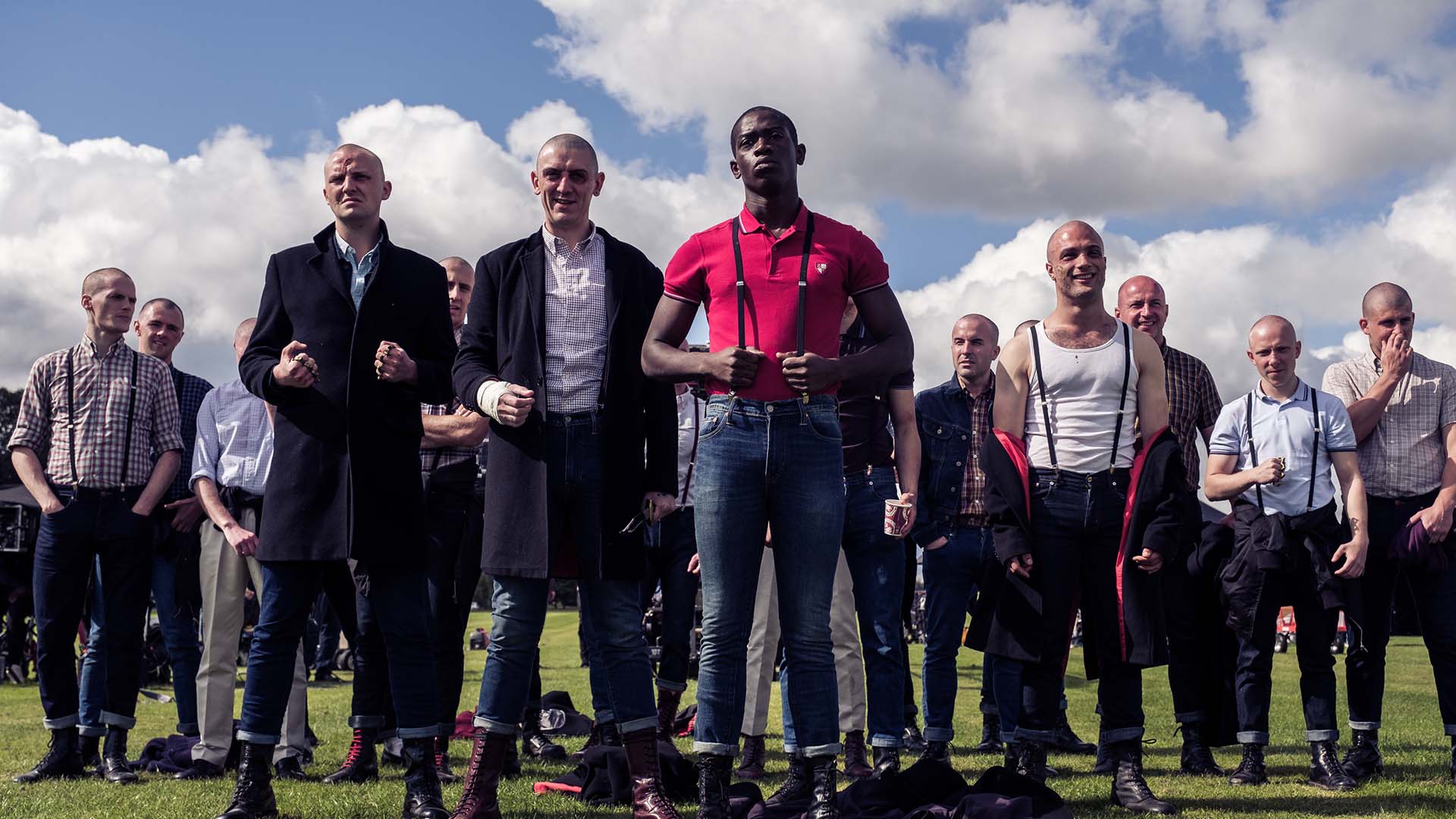Farming
'Lost' and 'Suicide Squad' actor Adewale Akinnuoye-Agbaje turns director to bring his own bleak childhood — including his teenage years in a skinhead gang — to the screen.
Overview
More than once in Farming, Enitan stares into a mirror and loathes his reflection. Born in Britain to Nigerian parents, fostered out to a white working-class family and constantly taunted about his race, he even tries to scrub away his darker pigment while glaring daggers at himself. When that doesn't work, the boy (Zephan Amissah) cakes his skin in talcum powder, such is his desperation to see anything but his usual likeness looking back. By the time that Eni becomes a teenager (now played by Damson Idris), his self-hating gaze has solidified, and yet it has also taken on a different tone. As he peers forward, he shaves his head, buttons up his collared shirt and pops his suspenders over his shoulders, all to fit in with the local skinheads.
Farming depicts Eni peering intently at a mirror again and again for a reason: no matter which cruel names are spat his way, the feature makes plain that it's his own opinion of himself that matters most. Sadly, he internalises the surrounding resentment and prejudice, so that's all that he can see in his own reflection. But, the fact that Farming even exists is proof that something changes. The film itself is a mirror — and in a more literal sense than most movies. Written and directed by Adewale Akinnuoye-Agbaje, this picture relays the actor-turned-filmmaker's own childhood. Known as Enitan as a kid, he once tried to scratch off his own skin, then joined forces with the very thugs that made his life hell — and now, after a two-decade on-screen career that's seen him feature in everything from Oz, Lost and Game of Thrones to The Bourne Identity, Thor: The Dark World and Suicide Squad, he shares that story.
In Farming, Akinnuoye-Agbaje's tale begins with the actor and director playing his own father, Femi — who, alongside his wife Tolu (Genevieve Nnaji), is tearfully handing over baby Enitan to Ingrid Carpenter (Kate Beckinsale). It's 1967, and the practice that gives the movie its moniker is common. Kids like Eni are left with white families while their birth parents study and find work, with couples such as Femi and Tolu hoping their children will get better opportunities in the process. As Farming steps through Eni's Essex-based youth, showing him weather threats from Ingrid and torment from everyone else around him, it demonstrates the impact of this decision — a hard choice made with love by the people who brought him into the world, and one with significant repercussions. Eni transforms from a smiling infant, to a shy kid happily lost in his own head, to a self-loathing outcast who believes that his only path forward is to embrace the hatred he keeps being made to wear like a second skin.
In scenes such as the aforementioned soap and talcum powder incidents, it's clear that Farming is directed by an actor, as well as by someone with a personal stake in this bleak and challenging story. This is a highly physical and expressive film that often feels like memories transposed onto the screen — and frequently highlights strikingly framed images and visceral, palpable emotions over dialogue. Thankfully, that's a mode that suits the talented Idris, who takes on that most difficult of tasks: not only playing a real-life figure, but playing the teen-aged version of his director. Raw pain doesn't just burn in his eyes, but infects every move that he makes, whether Eni is lashing out at his self-centred foster mother, himself or the only person (Gugu Mbatha-Raw, in a one-note role as a kindly teacher) who sees past his skin colour.
That said, Farming is also a forceful movie — building its confronting, compelling tale one horrific moment at a time, and hitting as bluntly as the blows directed Eni's way. As a boy, he may turn his skin a shade of grey, but the movie he's in only paints in black and white. Of course, that's how this experience clearly felt to Akinnuoye-Agbaje. There's nothing subtle about being told by your foster mother that you come from 'Wooga-Wooga Land', or being expected to grin through daily teasing from neighbourhood kids, or getting stripped naked and spray-painted with racist statements by the Tilbury Skins, after all. There's nothing nuanced about Eni's time among his violent bullies, either, where he's treated like a pet by vicious leader Levi (John Dagleish) and never considered an equal, even as he desperately hopes otherwise.
It's tough viewing, but Farming's great achievement — like the hallmark British race-relations drama of the 21st century, This Is England — springs from its willingness to stare unflinchingly at its grim contents. That Akinnuoye-Agbaje treats his adult successes as a mere footnote is telling; who he has since become is important, but what he endured to get there, and the ugly attitudes he faced that still echo today, are far more vital.





